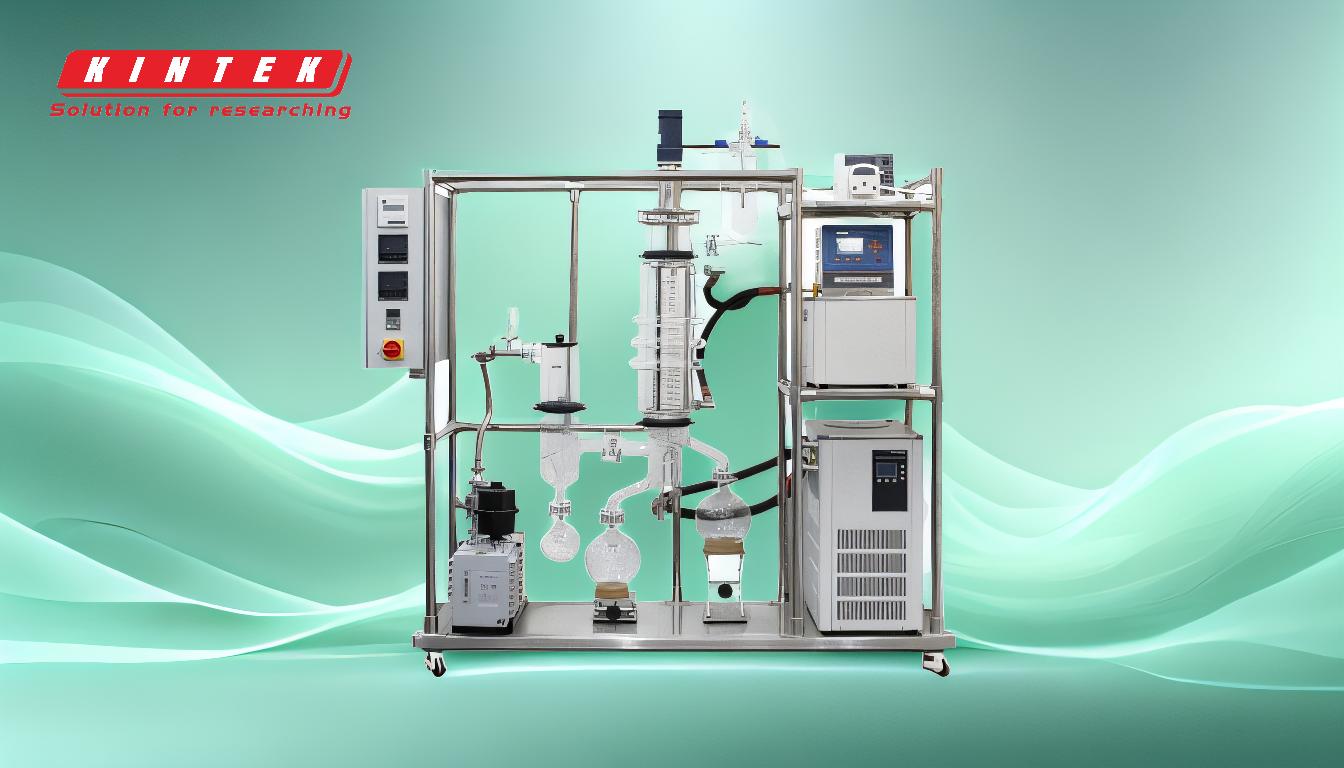Distillation processes, including industrial-scale vacuum distillation, molecular distillation, wiped film distillation, and short path distillation, offer numerous advantages depending on the application and scale. These processes are designed to separate mixtures, improve product quality, and optimize operational efficiency. Key benefits include the ability to handle close boiling mixtures, prevent product degradation, reduce energy consumption, and enhance system stability. Each method has unique strengths, such as increased productivity, customization options, and suitability for large-scale production, making them valuable tools in industries like food, pharmaceuticals, and petroleum refining.
Key Points Explained:

-
Separation of Close Boiling Mixtures
- Industrial-scale vacuum distillation excels at separating mixtures with similar boiling points, requiring fewer equilibrium stages compared to traditional methods. This is particularly useful in refining and chemical industries where precise separation is critical.
-
Prevention of Product Degradation
- Lower operating pressures and reduced temperatures in vacuum distillation minimize the risk of thermal degradation or polymer formation, preserving the quality of heat-sensitive materials. This is crucial for industries like pharmaceuticals and food processing.
-
Increased Productivity and Yield
- Wiped film distillation operates in continuous mode, significantly boosting productivity. The even heat transfer ensures consistent quality, even for high-viscosity materials, making it ideal for large-scale production.
-
Energy Efficiency and Low Maintenance
- Molecular distillation systems are designed for low energy consumption and reduced maintenance downtime. Advances in vacuum technology have further stabilized these systems, making them economically viable despite higher initial equipment costs.
-
High-Quality End Products
- Both wiped film and molecular distillation produce exceptionally pure and high-quality distillates. For instance, wiped film distillation requires only two passes to achieve exemplary product quality, which is beneficial for industries demanding stringent purity standards.
-
Customization and Flexibility
- Wiped film distillation offers considerable customization options, allowing adjustments to meet specific production needs. This flexibility is advantageous for industries with diverse product requirements.
-
Space and Cost Efficiency
- Short path distillation is ideal for smaller-scale operations or those with limited space and budget constraints. Despite its compact design, it maintains high product quality and is suitable for industries like food, beverage, and pharmaceuticals.
-
Reduced Capital Costs
- Industrial-scale vacuum distillation can lower the capital costs of distillation columns by reducing their height and diameter. Although operating costs may be slightly higher, the overall economic benefits are significant.
-
System Stability and Output
- Molecular distillation systems have seen improvements in vacuum technology, leading to increased output and reduced labor costs. These advancements enhance system stability and make the process more economically viable.
-
Versatility Across Industries
- Distillation processes are adaptable to various industries, including food, pharmaceuticals, and petroleum refining. Their ability to handle different materials and scales makes them indispensable in modern manufacturing.
In summary, distillation processes offer a range of advantages tailored to specific industrial needs. From improving product quality and yield to reducing energy consumption and capital costs, these methods provide efficient and reliable solutions for separating and purifying materials. The choice of distillation technique depends on factors such as scale, material sensitivity, and budget, ensuring that each process can be optimized for maximum benefit.
Summary Table:
| Advantage | Key Benefit |
|---|---|
| Separation of Close Boiling Mixtures | Precise separation with fewer stages, ideal for refining and chemical industries. |
| Prevention of Product Degradation | Low temperatures and pressures preserve heat-sensitive materials. |
| Increased Productivity and Yield | Continuous operation and even heat transfer boost output. |
| Energy Efficiency | Low energy consumption and reduced maintenance downtime. |
| High-Quality End Products | Exceptional purity and quality, even in two passes. |
| Customization and Flexibility | Adjustable to meet specific production needs. |
| Space and Cost Efficiency | Compact design, ideal for small-scale operations with limited budgets. |
| Reduced Capital Costs | Lower equipment costs with optimized column design. |
| System Stability and Output | Improved vacuum technology enhances stability and output. |
| Versatility Across Industries | Adaptable to food, pharmaceuticals, and petroleum refining. |
Optimize your distillation process for maximum efficiency and quality—contact our experts today!









